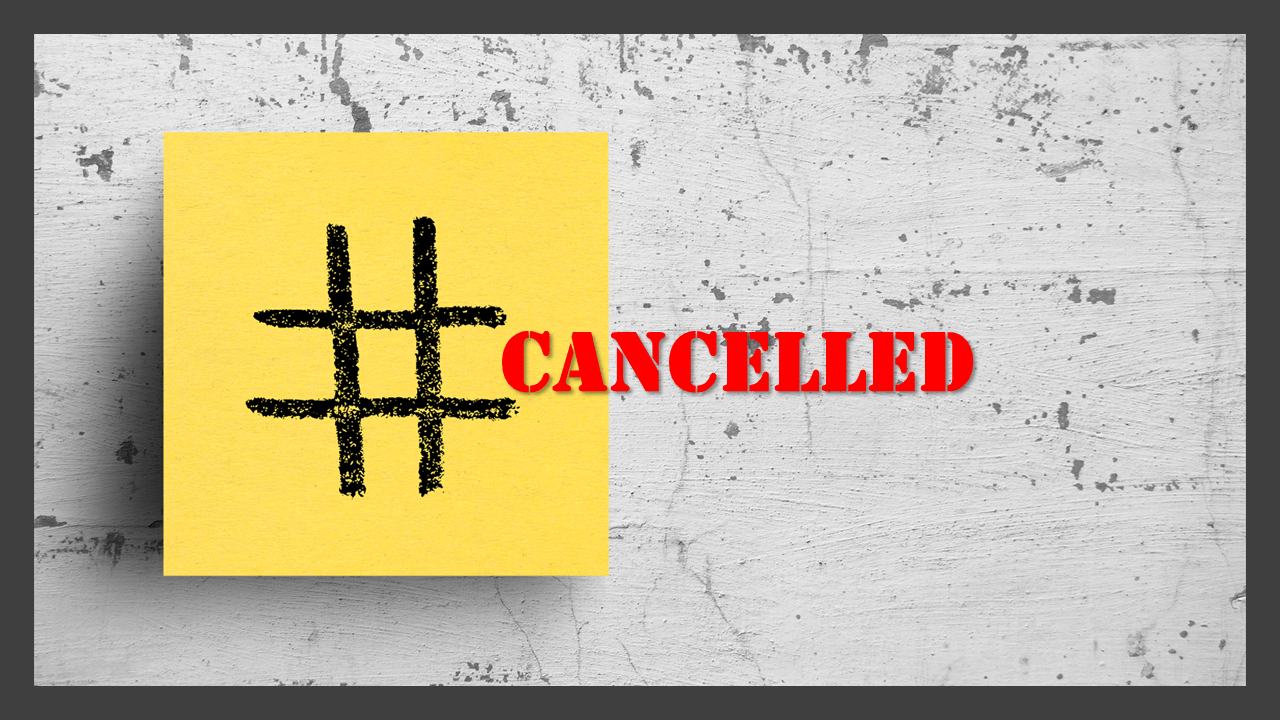Cancel Culture Deserves this F…

For failure to demonstrate consistency in its application and create sustained change.
FOMO, the other ‘f’ and once the primary concern amongst netizens, has been replaced by the fear of being “cancelled”. If recent headlines about artists changing song lyrics, celebrities, politicians, countries, brands, and everyday people being publicly shamed are any indication, this trend doesn’t seem to be going anywhere despite increasing calls for the cancellation of #CancelCulture.
What is cancel culture and who ends up on its receiving end?
According to Merriam-Webster, cancel culture refers to “the practice or tendency of engaging in mass cancelling as a way of expressing disapproval and exerting social pressure.” Another entry defines it as, “the mass withdrawal of support from public figures or celebrities who have done things that aren’t socially accepted today. This practice of “canceling” or mass shaming often occurs on social media platforms.” As far as who is on the receiving end, anyone can find themselves cancelled for offending a cancel-issuing body.
Making mistakes, taking time to reflect, learning, and growing are all important aspects of the human experience. As we journey throughout life, at some point, we will do or say something that will offend another. Whether that offense runs the risk of becoming known to the public, like most things, will depend on who you are. That said, actions have consequences and accountability for our actions is also central to the human experience. As Chapter tOO will always center inclusion-anchored (AJEDI-B™) approaches, we want to acknowledge that accountability looks, feels, and is applied differently depending on the “who” behind the harm.
Cancel culture is inherently problematic for a host of reasons starting with the glaring fact that cancellations are not created or applied equally or equitably. For some public figures, brands, and repeat offenders, cancellation lasts a nano-second and may have minimal to no impact on them financially or reputationally. Well crafted and executed PR and communication strategies can make becoming ‘uncanceled’ a breeze and often include the standard, ‘time being taken to reflect’ statement, followed by more formal public appearances and apologies, public donations, philanthropic work, possible rebranding, and more.
The lack of equity within cancel culture points to a deeper and often overlooked issue — that cancel culture is entrenched in and upheld by systemic, structural, and societal ‘isms’, more specifically those tied to race, gender, class, religion, sexual orientation, influence, and of course, the almighty dollar.
As all cancellations are not created equally, we’re confident that you can think of at least one instance when you observed someone (i.e., celebrity, loved one, organizational leader, colleague, yourself) demonstrating behaviors and engaging in actions that were not aligned with stated company (or personal) values. In observing or engaging in these behaviors, how often have you stopped to consider why they were tolerated and question whether someone from a different demographic could do the same without consequence? Our guess is rarely or never.
#GemAlert
We can’t fix what we refuse to acknowledge
Cancel culture isn’t working as intended (stopping bad behaviors) because…
- Humans are consistent at being inconsistent and have short attention spans, especially when their personal desires (e.g., overlooking the offense of a brand to justify a purchase) conflicts with the “cancel worthy” action.
- We don’t expect hypotheticals to become reality. Confronting our biases, beliefs, and perceived losses (i.e., influence, access, relationships, money) when they do, is deeply unsettling and something we’d rather avoid.
- To tame the problem, we must first name it. An unwillingness to temporarily deprioritize self and engage differing perspectives has led to an inability to articulate issue(s) holistically. Lack of clarity impedes progress.
- We’re unwilling to forgive and/or educate and as a result, intolerance, and ignorance reign, often resulting in the lack of social or behavioral change the “cancelation” intended to create.
Shaming and withdrawing support from colleagues, family, friends, and in particular public figures, does not equate to change. Cancellation can be fleeting, waited out, and may do little to change the beliefs or practices of the canceled party. Additionally, when cancel-issuing parties lack self-awareness and fail to self-check their own biases and cancel worthy offenses, they further jeopardize the credibility of the original (and potentially rightful) cancellation and risk being cancelled themselves.
Fear of cancellation has eroded the intention of cancel culture to the point where some mindlessly engage in actions later deemed harmful or unhelpful (e.g., black squares of solidarity for #BLM) in an attempt to avoid cancellation. And because all cancellations are not created equally (ahem, #MeToo) those with greater influence, access, money, and power, often retain their standing or recover (including financially) from cancellation while those without may suffer longer term effects, including mental health impacts.
Lastly, because cancel culture seems to work against itself, arguments become unnecessarily circular and the issue(s) at hand gets hijacked and lost in the chaos. Lack of clarity around who is to be held accountable, what the actual issue is, and who has been impacted/harmed further adds to the inability to thoughtfully bring awareness to issues, educate those seeking guidance, and bring about meaningful change.
#GemAlert
Cancel culture is harmful, anti-inclusion and education, lacks consistency of application, and doesn’t always work.
If you’re an organizational leader seeking guidance on how to create more inclusive, empowered, and innovative workplaces, get in touch with us here.
I'm Charmaine. CEO and Founder of Chapter tOO™ and your guide to professional and business optimization. More About Us
Welcome!
A NYC certified Minority/Women-Owned Business Enterprise (M/WBE)
© 2021- 2025 Chapter too™ all rights reserved.